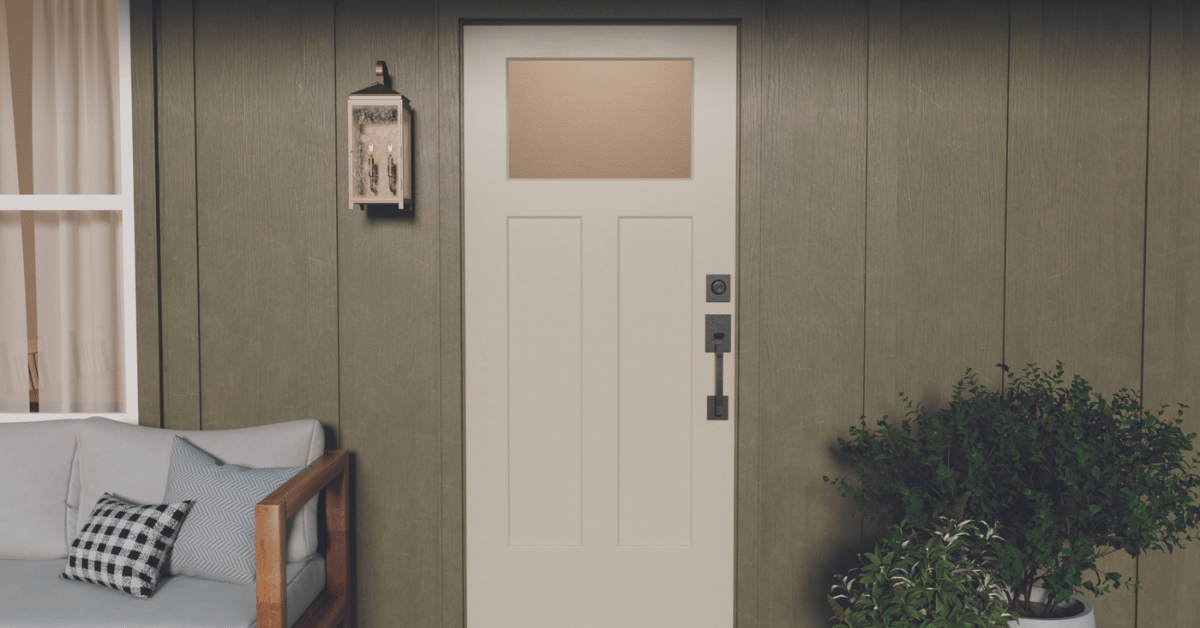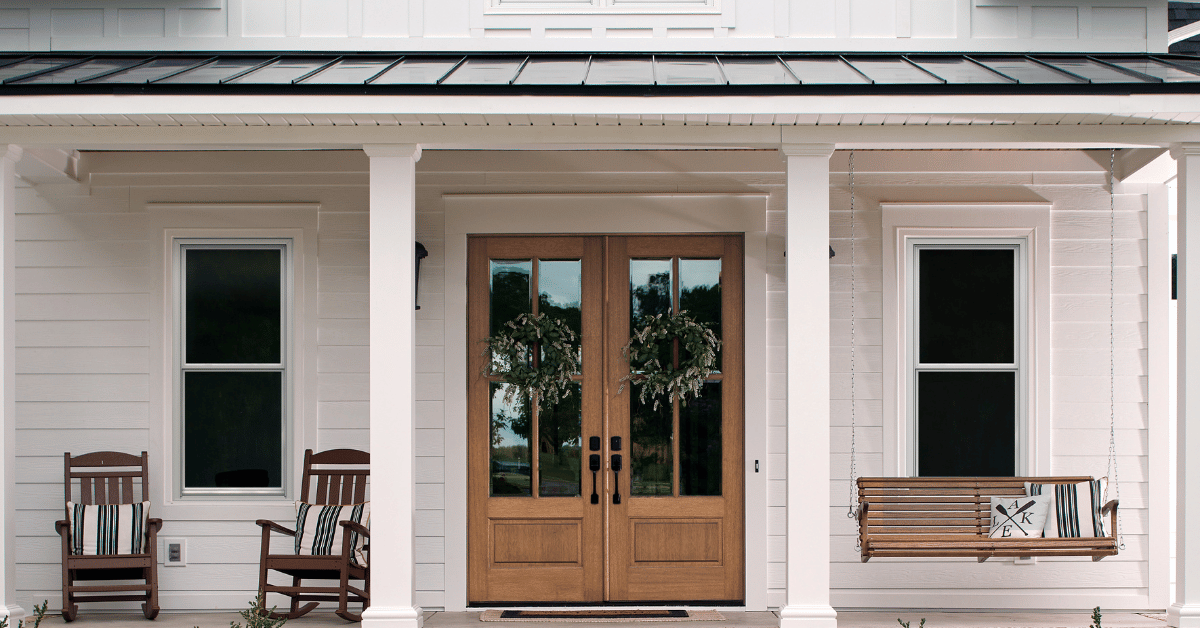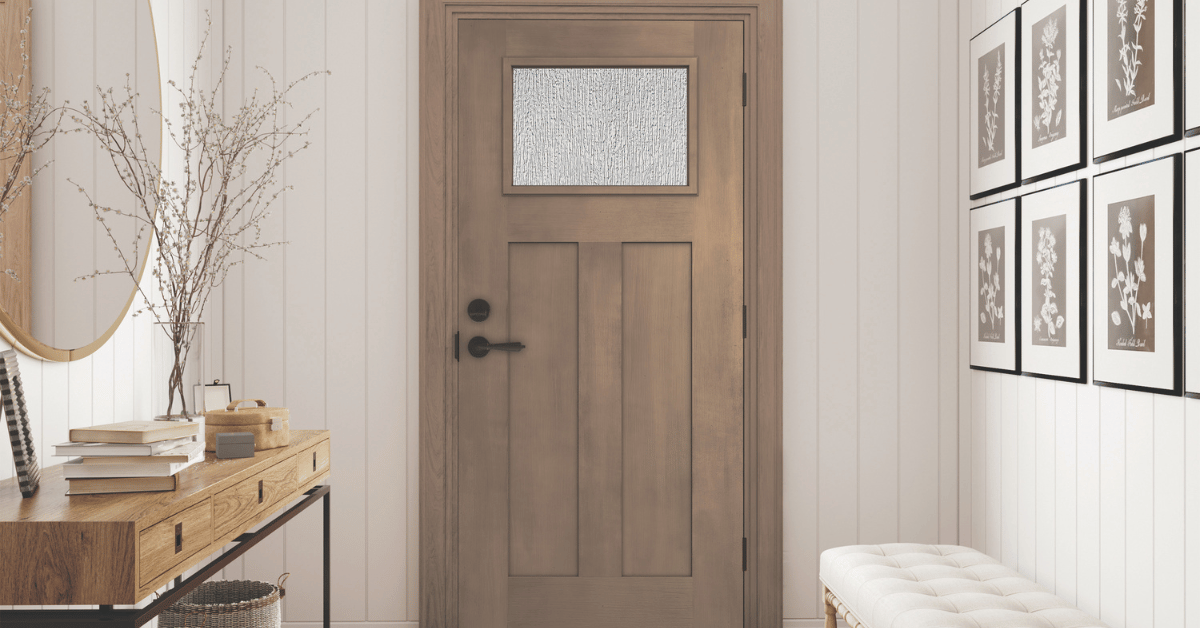There are fun things to buy for your home, and not-so-fun things (think “invisible” changes like roof shingles). We believe that buying a new front door for your home falls into the “fun" category.
After all, a new front door contributes to curb appeal, exterior beauty and that feeling of satisfaction at coming home to a functional and attractive door. If you’ve ever had a door that sticks and must be slammed to fully close, you’ll be astonished at the difference a functioning door makes.
There are several important considerations when selecting a new door. While style is the truly fun part, material is a biggie. The material your door is constructed with–whether wood, steel or fibreglass–affects its durability, aesthetic appeal, environmental friendliness, longevity, cost and more.
This doesn’t necessarily mean there’s a right choice and a wrong choice, but there’s an option that works best for you and your individual needs. Read on as we explore the materials used in door construction to help you make an informed decision when choosing a new door or doors for your home.
Durability and maintenance
Your home’s exterior doors have a big job to do–they keep out rain, wind, snow, heat, cold and pests. They also contribute to the security of your home and its contents. In our Canadian climate, you’ll want to choose a door that’s durable and stands up to the elements over time.
Exterior doors made from steel offer an extremely durable and low-maintenance option. Steel doors are not prone to warping and won’t need to be stained or refinished as often as wood might. Built strong, steel doors offer great protection against potential intruders too. On the downside, steel (particularly older-model steel doors) can dent relatively easily and may rust over time.
Wood doors are more apt to warp and change shape over time, as natural wood expands and contracts with extreme temperature fluctuations. Wood doors also require more frequent maintenance.
An annual check of your wood door is recommended–refinish and stain regularly to remove surface scratches or small dents and help to protect the door from the effects of moisture and extreme weather. Newer types of wooden doors that combine wood veneers with engineered wood cores can reduce the likeliness of warping and cracking.
Fibreglass doors are typically constructed from two moulded sides and an insulating foam core. In comparison to wood, fibreglass doors require minimal maintenance. They are also extremely durable and aren’t as prone to dents or chips as steel and wood doors. They are an ideal choice for a front exterior door, with a composite construction that stands up to regular use for longer than wood or steel.
Which type of door material looks best?
That’s a trick question. We can’t definitively say that one type of door material looks better than another, because the right choice depends on your home’s style and your individual preferences. Whether your aesthetic is traditional, transitional or modern, you’ll find a door design that suits your home and meets your needs.
Steel doors are a great option for areas of the home that require a strong exterior door with simple styling, such as a side or garage entry door. Steel cannot mimic the natural look and texture of wood, and is most often available in a flat, painted finish.
Steel doors are a strong contender where durability, security and simple aesthetics are the priorities. With a paintable finish, steel doors offer the potential for a quick and inexpensive seasonal refresh, should the impulse for a new colour hit you—maybe a pumpkin hue for autumn?
Wood doors make an impactful and often high-end statement, with unique natural style, warmth and character. They offer a commanding architectural presence, ideal for a traditional style home where the natural look of wood is preferred to a painted finish.
Fibreglass doors have the chameleon-like power to adapt to any style. They are available in a huge range of styles, shapes, sizes and finishes and can even be made to effectively mimic the strong architectural look of real wood without the maintenance requirements.
All three types of doors–steel, wood and fibreglass–include the option of adding glass, giving you an abundance of additional style options and introducing welcome natural light into your home.

How much do different door materials cost?

Steel exterior doors tend to be the most inexpensive up-front purchase. Solid wood doors run at the higher end of the price range, and customization options can add further to the cost. Wood veneer doors may cost less than solid wood, depending on the core materials and quality.
Fibreglass doors are generally an initial investment that falls in between the costs of steel and wood. Because it’s low-maintenance, fibreglass can help you save money over the lifespan of the door.
Environmental considerations
Your exterior door is not just an entry point for humans, pets and new furniture–it can also let in undesirables, including heat, cold air and wind. For this reason, a door will never be as insulating as a wall. But you can get close.
Look for exterior doors that are designed with strong insulating properties to save on energy costs, protect the environment through reduced use of heating and cooling and increase your family’s home comfort.
Steel on its own is not energy efficient, as it absorbs heat and cold, so it’s best to choose a steel door with an insulated core. Solid wood doors or those with an insulating core can have a high R-value (a number that indicates how well a type of insulation can keep heat from entering or leaving your house).
A well-designed fibreglass door, created with energy efficiency in mind, will give you strong protection from the elements. Fibreglass doors are made to stand up to difficult climates and weather severe storms.
JELD-WEN of Canada’s ENERGY STAR® doors are third-party certified to meet strict criteria for energy efficiency. The ENERGY STAR® symbol guarantees a door that has been laboratory accredited to withstand harsh Canadian weather.
Now that you’re armed with our tips and tools, we hope that you are inspired to find the perfect door for you. Feel free to reach out to us with any questions.
Explore Related Posts














